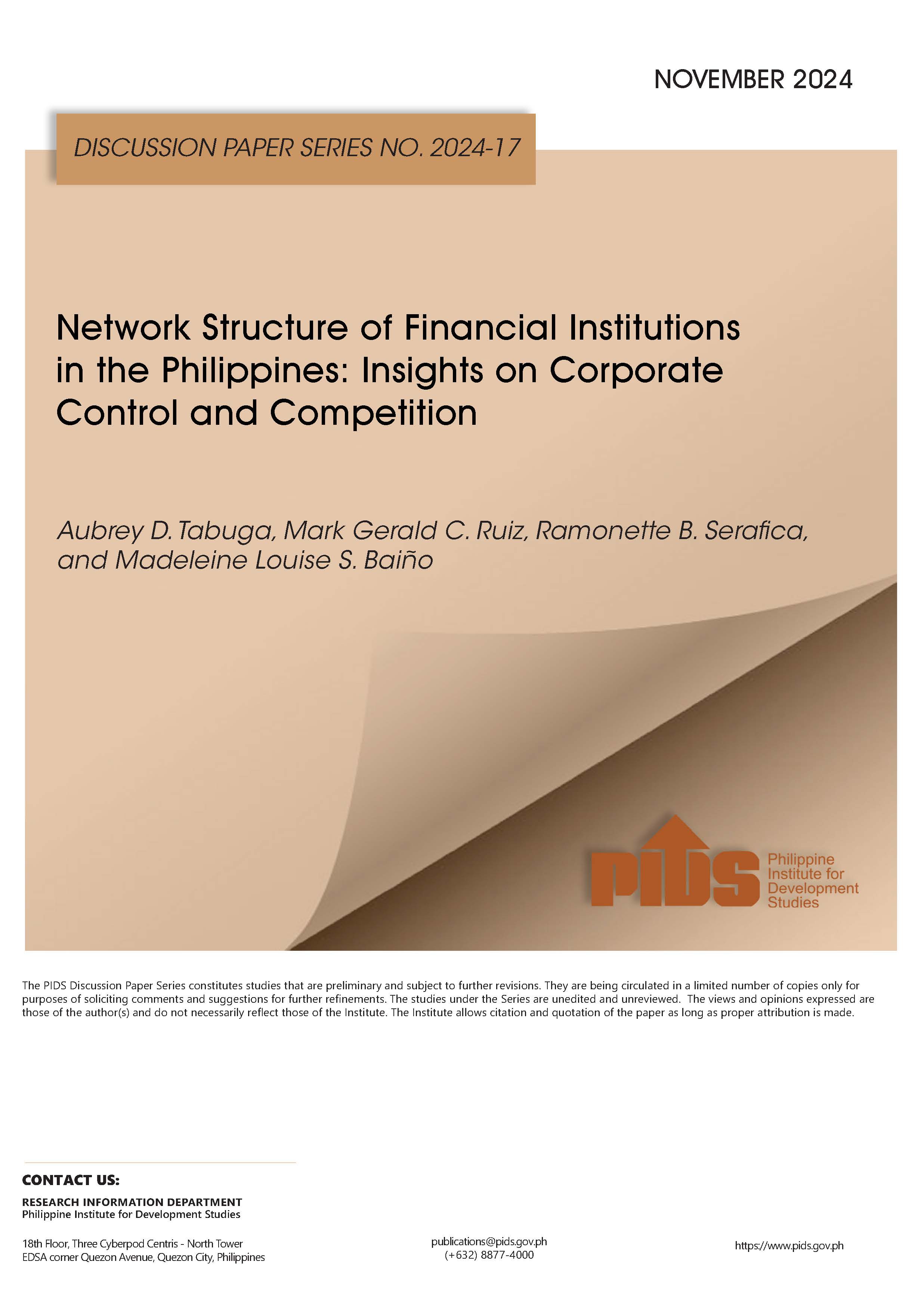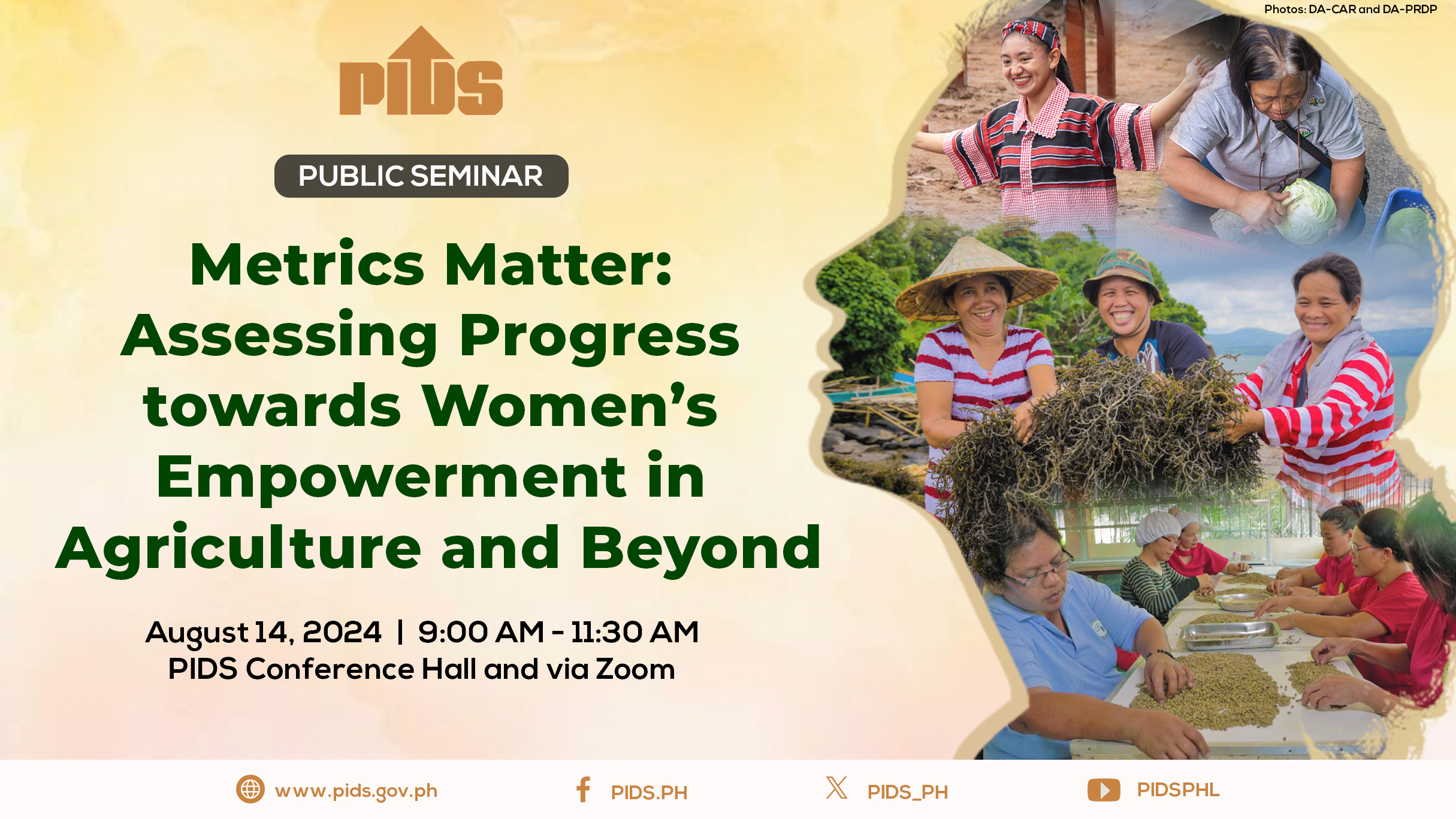MANILA, Philippines – Exporters, producers and processors of agriculture and fishery products must diversify their portfolio to gain competitive advantage in overseas market and maximize the country’s potential benefits from the ASEAN economic integration, a state think tank said.
“Although a longer value chain is needed to realize diversification, it delivers more benefits,” said a policy note titled “Improving the readiness of A&F industries to the ASEAN integration” released by the Philippine Institute and Development Studies (PIDS).
PIDS said a public program that encourages product diversification may result in larger value added, more jobs and income opportunities in on- and off-farm activities.
It cited as an example coconut products which could be processed to produce coconut sugar, virgin coconut oil and other coconut-based products.
The PIDS also underscored opportunities that exist in commodities that the Philippines can produce competitively, such as sugar, corn, animal feed, tobacco and palm oil.
Growth in international demand is also expected to benefit exporters that can meet the increasing requirements related to environment, food safety and commercial policies of importing countries.
“To be more competitive, the quality of the country’s A&F products should be improved. This can be done through the application of good production practices, such as good agricultural practices and good manufacturing practices,” it said.
Improving the quality of Philippines’ products also requires further investment in human capital development to upgrade skills, it added.
The PIDS study said economic integration tends to displace local industries that may not be competitive in the absence of trade protection.
“The key to realize larger and more diverse market opportunities of regional integration is to facilitate the movement of economic resources previously in displaced import- competing industries to export-oriented industries and to make more effective those that are already in export-oriented industries,” it said.
Further, the PIDS said local producers must find a way to become competitive other than by being granted production or export subsidies, which are often inefficient and vulnerable to leakages.
Businesses need to innovate to adapt to the impacts of climate change, respond to the challenges of rising input costs and take advantage of the opportunities for value adding in their industry.
“High degree of preparedness of agro-based value chains is necessary to translate market opportunities into new sources of incomes for the country’s agricultural and fisheries producers,” it said.
One of the recommendations is to establish industry roadmaps with stakeholders to determine market opportunities and the needed resources to realize them.
The PIDS study also underscored the need for the government to provide stronger and more effective support to local producers to better prepare them for the ASEAN economic integration.
“Although a longer value chain is needed to realize diversification, it delivers more benefits,” said a policy note titled “Improving the readiness of A&F industries to the ASEAN integration” released by the Philippine Institute and Development Studies (PIDS).
PIDS said a public program that encourages product diversification may result in larger value added, more jobs and income opportunities in on- and off-farm activities.
It cited as an example coconut products which could be processed to produce coconut sugar, virgin coconut oil and other coconut-based products.
The PIDS also underscored opportunities that exist in commodities that the Philippines can produce competitively, such as sugar, corn, animal feed, tobacco and palm oil.
Growth in international demand is also expected to benefit exporters that can meet the increasing requirements related to environment, food safety and commercial policies of importing countries.
“To be more competitive, the quality of the country’s A&F products should be improved. This can be done through the application of good production practices, such as good agricultural practices and good manufacturing practices,” it said.
Improving the quality of Philippines’ products also requires further investment in human capital development to upgrade skills, it added.
The PIDS study said economic integration tends to displace local industries that may not be competitive in the absence of trade protection.
“The key to realize larger and more diverse market opportunities of regional integration is to facilitate the movement of economic resources previously in displaced import- competing industries to export-oriented industries and to make more effective those that are already in export-oriented industries,” it said.
Further, the PIDS said local producers must find a way to become competitive other than by being granted production or export subsidies, which are often inefficient and vulnerable to leakages.
Businesses need to innovate to adapt to the impacts of climate change, respond to the challenges of rising input costs and take advantage of the opportunities for value adding in their industry.
“High degree of preparedness of agro-based value chains is necessary to translate market opportunities into new sources of incomes for the country’s agricultural and fisheries producers,” it said.
One of the recommendations is to establish industry roadmaps with stakeholders to determine market opportunities and the needed resources to realize them.
The PIDS study also underscored the need for the government to provide stronger and more effective support to local producers to better prepare them for the ASEAN economic integration.











